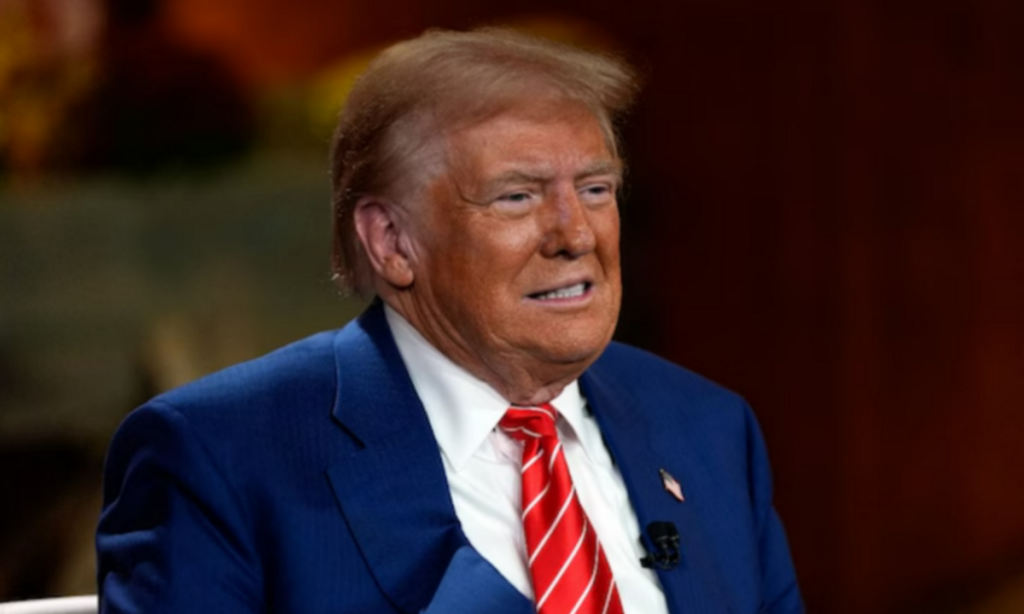A recent focus group study with swing voters in Georgia has shed light on widespread disapproval of the presidential pardons issued by both President Donald Trump and former President Joe Biden. Participants criticized the pardons as examples of overreach, with many supporting the idea of curbing presidential pardon powers through a constitutional amendment.
This discontent could have far-reaching implications, potentially shaping political debates and campaign issues ahead of the 2028 election.
Key Findings from the Focus Group
The focus group, conducted by Engagious/Sago on January 21, included 12 Georgia voters who had switched their support between Biden and Trump in recent elections. The group comprised seven independents, four Republicans, and one Democrat.
While not a statistically representative sample, the discussions provided valuable insight into voter sentiments about governance during the Trump 2.0 era.

Here are the key takeaways:
Unanimous Opposition to Excessive Pardons: Every participant disapproved of both Biden’s and Trump’s pardons, with 10 of the 12 opposing all of Trump’s pardons. Two participants opposed only those related to violent crimes.
Support for Reform: All 12 participants said they would back a constitutional amendment to limit presidential pardon powers.
Concerns About Accountability: Many expressed frustration over the message these pardons send about accountability for criminal actions.
Reactions to Trump’s Pardons
Trump’s pardons, which included roughly 1,500 individuals charged in connection with the January 6 Capitol attack and 14 sentence commutations, were particularly controversial.
“If you did the crime, you need to do the time,” said Chris F., a 40-year-old participant. Leah A., 41, added, “It’s setting a bad example that people can commit crimes and get away with it.”
Some felt that Trump’s actions were motivated by personal loyalty rather than justice. “Forgiving someone who committed such a crime just because they supported you is not the right choice,” noted Nive P., 39.
Biden’s Pardons Also Criticized
Biden’s pardons, issued during his final moments in office, faced similar backlash. These included pardons for family members, former NIAID Director Anthony Fauci, members of the House January 6 committee, and retired U.S. Army General Mark Milley.
One participant questioned why a president should have such sweeping powers, while another criticized Biden for prioritizing personal and political connections over the public’s interests.
“Biden hasn’t really done much for the American people,” said Gretchen S., 49. “Then, just at the end, he thought, ‘Let me take care of my family and friends.’”
Broader Implications for Pardon Reform
Rich Thau, president of Engagious and the moderator of the focus groups, suggested that the strong disapproval of these pardons could make “pardon reform” a prominent issue in the 2028 election.
“Considering how emphatically Georgia swing voters disapproved of Trump’s and Biden’s pardons, there’s a chance that this topic could gain traction if a candidate embraces it,” Thau said.
The participants, however, were skeptical of partisan attempts to frame the other party’s actions as worse. Instead, they viewed both leaders’ pardons as examples of presidential overreach.
What Swing Voters Want from Trump Now
Despite their criticism of the pardons, most participants said they voted for Trump in the recent election due to economic concerns. Their primary hope is for Trump to focus on strengthening the economy.
“The best thing Trump could do for us this year is make our economy stronger,” said Jimmy P., 47. However, others warned against a repeat of his past controversies. “The worst thing President Trump can do this year would be to continue disrespecting the people of America,” added Chris F.
Conclusion
The focus group results highlight growing frustration with the unchecked power of presidential pardons. Swing voters in Georgia expressed strong support for reforms that would ensure greater accountability and limit the potential for abuse.
As economic concerns dominate the political landscape, voters also hope Trump will prioritize policies that address inflation and financial stability. Meanwhile, the disapproval of both Trump and Biden’s pardons serves as a reminder of the challenges leaders face in balancing their executive powers with public trust.
The call for pardon reform may not only influence future elections but also spark broader conversations about the role of presidential authority in the United States.
Disclaimer—Our team has checked this article to ensure its accuracy and eliminate any misinformation. We are committed to providing clear and reliable information for our readers.




